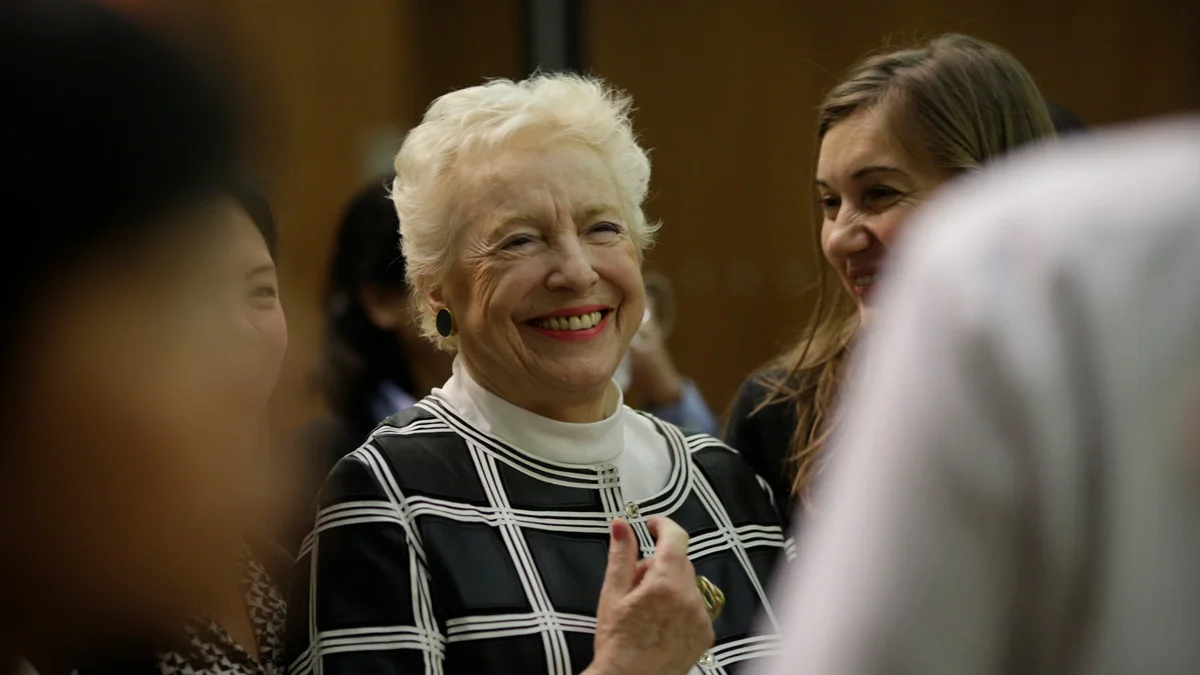
This article is an online version of our Off to Lunch newsletter. Sign up to receive it straight to your inbox here.
Business Thinker
Deep dives on business and leadership
? The key to productivity: stop measuring work by time
In Belgium, Audi workers have taken a bold stand by stealing 200 car keys, refusing to let any vehicle leave the factory until rumours about its closure are addressed. The Times columnist Harry Wallop says this dramatic action may highlight a deeper issue plaguing workplaces everywhere: the theft of time. As fears grow over remote workers and ‘working time fraud’, the debate intensifies over whether we should be paid for hours spent or output delivered.
?? To build resilience, CEOs need to become supply chain experts
In the past, awareness of and engagement with the supply-chain function was a key expectation for CEOs. But in the wake of a series of global events, including the Covid-19 pandemic, Russia’s invasion of Ukraine, and disruptions in the Middle East and the Panama Canal, is it now time for CEOs to be supply-chain-management experts themselves? A close examination of S&P 500 CEO career trajectories, as well as an analysis of financial performance metrics, suggests that CEOs with prior experience in high-level supply-chain roles might be the key to building more resilient supply chains and weathering unanticipated disruptions.
?? ‘There’s a war for the top 1%’: Inside French tech’s fierce battle for the best AI talent
Paris has become a battleground for AI talent as French startups including Mistral, Poolside and H compete with big tech firms for the brightest minds. With salaries surging and an exodus from established companies, France's AI landscape is experiencing a fierce struggle for top engineers and researchers, challenging the country's bid to lead in the AI race.
Business Question
Who am I?
- Forbes named me one of the world's most influential marketers
- I am the chief content officer at a leading marketing education and training company
- My best-selling book is titled Everybody Writes: Your Go-To Guide to Creating Ridiculously Good Content
- My bi-weekly newsletter called "Total Annarchy"
The answer can be found at the bottom of the page.
Business Agenda
A summary of the most important business news
By Sarah Vizard
1. OpenAI, the company behind ChatGPT, is planning to launch an AI product it says is capable of reasoning, meaning it will be able to solve hard problems in areas such as maths, coding and science. The models, known as 01, will be integrated into ChatGPT Plus and are designed to be used by developers and scientists, rather than general users. You can read more here.
2. Boots has named a new boss, with its retail and operations director Anthony Hemmerdinger appointed managing director. The current MD, Seb James, is leaving to pursue a role in the healthcare sector. Hemmerdinger will take over on 4 November. You can read more here.
3. Tesco has lost its legal battle in the UK over plans to “fire and rehire” staff on lower pay. The dispute with the shopworkers’ union Usdaw began in 2021 and centred on plans to use the threat of dismissal or dismissal to remove retention payments. The supreme court ruled Tesco could not terminate contracts to stop them receiving the payments, and then rehire them on new contracts without this payment. You can read more here.
4. Vodafone and Three have rejected claims by the UK’s competition watchdog that their proposed merger would lead to higher prices for customers. The Competition and Markets Authority has provisionally concluded the deal would weaken competition, with those least able to afford mobile services most affected. The regulator will now consult on its findings. You can find out more here.
5. Revolut founder Nik Storonsky has reportedly sold shares worth up to $300m (£230m) in the company he founded in 2015. The sale came as part of a secondary share sale by employees that concluded last month, with Sky reporting that Storonsky sold between 40 per cent and 60 per cent of that stock. He still retains a stake estimated to be worth around $8bn, with the company worth $45bn. You can find out more here and read our profile of Storonsky here.
Business Quote
Inspiration from leaders
“The quality of a leader is reflected in the standards they set for themselves.”
– Ray Kroc
Business Leader
The best of our content

From Kindertransport refugee to business leader
Around a year ago, I was prepping for an interview with High Performance podcast host and Business Leader Expert Jake Humphrey. Scrolling through podcast episodes I came across one with Dame Stephanie Shirley. I wasn’t familiar with her name but gave the interview a listen. I was hooked for every second of the 58 minutes. It’s a story like no other and it’s one I believe everyone should hear.
The headline is that the company she founded was sold for £2.3bn. That made 70 employees instant millionaires via its employee ownership scheme – but Dame Stephanie is much more than that. She came to the UK at five years old with her sister on the Kindertransport to escape the rise of the Nazi regime.
Survivor’s guilt plagued her upbringing but her passion for education instilled by her foster parents saw her push hard at school, despite girls being discouraged to take certain subjects. This led her to get a job at the Post Office research station in Dollis Hill. The renowned north London operation was where Colossus, the world's first programmable electronic computer, was created.
“The mechanical calculator on which I churned out my boring calculations was so basic that it hardly deserves to be called a precursor of the modern computer,” she recalls. “Yet even I could sense that, with sufficient brainpower, this simple concept could evolve into an unimaginably powerful computing device. I fell in love with computing.”
The concept for her company, Freelance Programmers, was born out of frustrations with sexism and inequality in the workplace. “Several of my colleagues, when told of my plan, laughed openly,” she says in her autobiography Let It Go: My Extraordinary Story – From Refugee to Entrepreneur to Philanthropist.

“I presume the rest laughed in private. Not only was the plan mad, but there was also the awkward fact that I was a woman. I was so discontented with the social environment that women had in the 1960s that I set up the company as an exemplar of what women could do.”
It was a novel concept for many reasons. First, it sold software. Not a revolutionary idea through the prism of modern understanding, but customers didn’t buy software in those days. “They expected that to be thrown in for nothing, like a manual for a new car,” she says.
Second, it was at first entirely staffed by women working from home at times that suited them. They used to play tape recordings of office noises in the background of phone calls with clients to mask the fact they were women working at home looking after their children.
That wasn’t the only thing Dame Shirley had to mask. She grew frustrated with the lack of response to letters drumming up business in the early days. That was until her husband Derek pointed out that perhaps the problem lay not with the letters but with the signature at the bottom.
“It was not unreasonable to speculate that many potential customers, seeing the words ‘Stephanie Shirley' at the bottom of a letter, would refuse to take proposals seriously, simply because I was a woman,” she says. “Derek suggested testing this theory by signing a few letters ‘Steve Shirley' instead. I did so, and people began to respond. I have been Steve ever since.”
You can read the interview with Dame Stephanie Shirley here or watch the full interview ">here.
Other popular pieces
?? 7 leadership lessons UK business owners can learn from across the pond
?? When creating social content, offer value not cheap tricks
?? Getting ahead in the battle to attract and retain top talent
And finally...

We are big fans of the Acquired podcast here at Business Leader, as regular readers of this newsletter will know. Acquired looks in-depth at the stories behind successful companies. Each episode lasts three to four hours.
This week they hosted a live event in San Francisco. The special guest was Mark Zuckerberg and 6,000 people turned up.
According to those who were there, Zuckerberg gave one of his most reflective and in-depth interviews ever. Casey Newton, who writes the Platformer tech newsletter, was there. This is one of the quotes from Zuckerberg: “One of the things that I look back on and regret is, I think we accepted other people's view of some of the things that they were asserting that we were doing wrong, or were responsible for, that I don't actually think we were.
"There were a lot of things that we did mess up and that we needed to fix. But I think that there's this view where, when you're a company and someone says that there's an issue, the right instinct is to take ownership. Say, maybe it’s not all our thing, but we’re going to fully own this problem, we’re going to take responsibility, we’re going to fix it.”
You can read a full write-up of the event and interview here.
The answer to today's Business Question is Ann Handley.
Related and recommended

The technology is being used to redefine leadership, strategy and time management for modern bosses

Ebike entrepreneur Caroline Seton explains why start-ups should withstand external pressures to change course

Tom Crowley explains his philosophy for running successful high street food businesses

The travel tour entrepreneur’s business is thriving after the pandemic because she listened to customers

